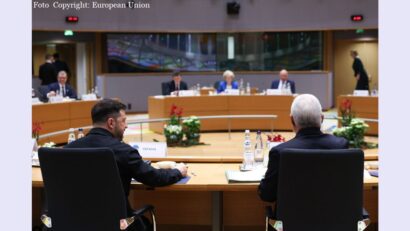Romania and the IMF Agreement
The current precautionary agreement that Romania has with its international lenders has reached a delicate point.

Florentin Căpitănescu, 13.06.2014, 12:30
After a 10-day visit to Bucharest, during which they discussed with high-level officials and industry representatives, the IMF, EC and World Bank experts announced that the third assessment of the loan agreement with Romania was postponed. PM Victor Ponta confirmed that the assessment of the 4-billion euro precautionary loan deal has been put off to November:
“The agreement is not suspended, nor canceled in any way, nor terminated. We have this agreement running, and if necessary—which is not the case at present—we still have access to that 10% top up and co-funding for European projects. The credit lines opened by the World Bank for healthcare and education are also valid and operational. And in this respect I believe the confidence Romania has gained in relation to the international financial institutions and private financial markets is still there, and we need to preserve that.”
The differences between the parties have to do with what experts have termed fiscal relaxation, which has been long demanded by the business environment. The main measure the Government wants to use in order to reduce the pressure on entrepreneurs is to reduce the social security contributions paid by employers by 5%. Initially announced for July 1st, the measure, Ponta explained, will be applied starting October 1st, although it has not been approved by the international lenders. Slashing social security contributions has been the bone of contention in the negotiations with the IMF, which has had an important say as regards the financial-economic policies implemented by successive Romanian government since the economic crisis hit the continent. As Ponta said, the public budget allows for the lowering of these contributions, so the losses will not be off-set by additional taxes or charges:
“We will not deepen the budget deficit, nor will we raise other taxes and charges in order to off-set this reduction.”
Whereas the Government sees this measure as a central element to fiscal relaxation, the Opposition claims the left-wing Cabinet is acting on electoral opportunism alone. As the interim president of the National Liberal Party, Klaus Iohannis, put it, it is not a coincidence that the measure will be applied one month before the presidential election scheduled for November.






























